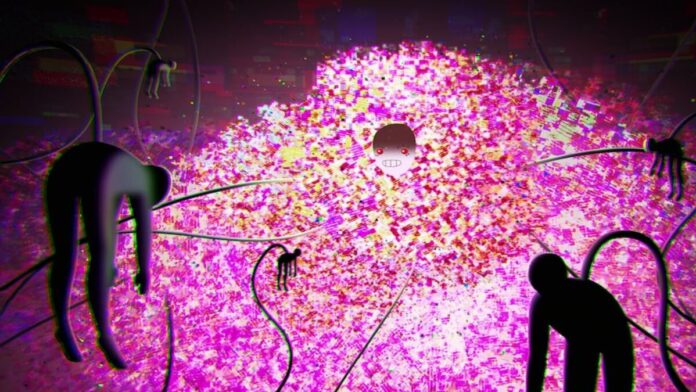Netflix’s The Antisocial Network: Memes to Mayhem is a little too formal for its own good, especially for a movie that highlights a group of people that frequently found it chemically difficult to follow the norms of civilised society. It follows the streamer’s prescribed format for narrative non-fiction with such rigour that it makes you question if projects that don’t follow it would face consequences. This is ironic because the 90-odd minutes of the film examine a positively anarchic subject. The Antisocial Network, though a compelling, slick, and generally unsettling viewing, makes a clear distinction between the January 6 uprising at the US Capitol and random online mischief in the mid-2000s.
As depressing as this discovery may be, anyone can see the clear connection between Rickrolling and real rioting. Thankfully for all of us, this movie does not feature any academics. The creators of 4chan, members of Anonymous, and a number of journalists who have covered online culture for many years are all featured in The Antisocial Network.
An anthropological investigation into the internet’s beginnings as a utopian dream and its eventual collapse into a corrupt and capitalist wasteland is just waiting to be undertaken. The creators of 4chan, a website that is considered by many to be one of the most vile places on the internet, created it as a place where enthusiasts of Japanese culture could meet other like-minded individuals. This comparatively innocent time in recent history—when meme culture and the term “trolling” first emerged—is revisited in The Antisocial Network. This was the period when misfits and outcasts would gather on forums like 4chan, all while remaining anonymous of course, and compete Darwinian-style to come up with the most interesting reaction to a real-life incident that was going on. However, those who tended towards disorder were driven to the dark side by the dopamine rush of an upvote and the immunity that comes with being invisible.
And that’s when the notorious hacking collective known as Anonymous was founded. At its height of influence, these people gave the FBI chills. A number of former members of the Antisocial Network reminisce about the coups they pulled off. A man going by the handle Kirtaner claims to have cracked Donald Trump’s Twitter password at one point. It seems to you that he boasts about this at every opportunity. However, what started out as a socially aware movement against bigots and racists gave rise to a particularly insane offshoot known as QAnon. Most notably, Anonymous’ intervention caused far-right broadcaster Hal Turner to lose both his website and his wife. These are the people that fell for hoaxes alleging that a group of liberal elites was running a child sex trafficking operation.
In the film, a number of former Anonymous members confess that their primary motivation was adrenaline, with very few of them genuinely supporting causes like the Occupy Wall Street Movement or the international demonstrations they planned against the Church of Scientology. Even though the authorities didn’t clear them all—at least a few of them were detained by the feds—the Antisocial Network lets them all off the hook. In fact, one person ran away for several months. They inflicted harm to hundreds, if not thousands, of people by deliberately engaging in targeted internet harassment, but the film believes that a feigned lack of concern will suffice to clear them of all of this. A portion of it idolises these figures and portrays them as rock stars and rebels rather than the awkward social misfits they truly were.
Even worse, though, is that the movie makes no attempt to identify or condemn the platforms like Facebook and WhatsApp, which are now part of Meta, for their role in spreading false information. In contrast, 4chan is a simpler target, and the website is still seen as somewhat fringe. However, a great deal of information has been released about Facebook’s influence over elections; however, the film largely ignores this. But Alex Jones isn’t off the hook. The Truth vs. Alex Jones, a fantastic HBO documentary that may be the most satisfying example of real-life retribution ever seen on camera, is highly recommended right now.
The Antisocial Network, which was directed by Giorgio Angelini and Arthur Jones, is the second film this week to make significant use of animated interludes to improve its visual appeal. Although hacking is arguably one of the least cinematic activities to depict on television, The Antisocial Network capitalises on its characters’ love with anime to liven up these scenes with cartoons. It uses tried-and-true shock-doc techniques the remainder of the time. Although it isn’t the most memorable film of its kind, it also can’t be written off.




